When Chinese smartphone company Xiaomi begins trading on the Hong Kong stock exchange Monday (July 9), investors will be betting on whether founder Lei Jun can deliver on his unusual three-pronged business model.
Some have compared it to Apple, noting its mix of revenue streams from hardware and software, and foray into streaming content via its apps. But in recent years, as it opens more of its Mi Home stores, Xiaomi is starting to look less like a pure tech company and a lot more like a specific type of retailer—one that sells perfectly ordinary products that are decent quality and cheaply priced. We’re talking about Japanese retailer Muji, known for an eclectic, minimalist product range that encompasses snacks, stationery, small household goods and storage items, and clothing.
Xiaomi originated as a smartphone maker less then a decade ago, and later branched out into other gadgets like drones, fitness trackers, and smart home devices that sync with an app—such as this wifi-enabled rice cooker. Over the past two years, however, it has offered an increasing number of decidedly low-tech products to its customers.
On Xiaomi’s website, you not only can buy a television, a wifi-connected air filter for 899 yuan (about $135). You can also buy:
- A pair of sneakers, for 199 yuan ($30). These are not wi-fi connected.

- A suitcase, for 399 yuan ($60).
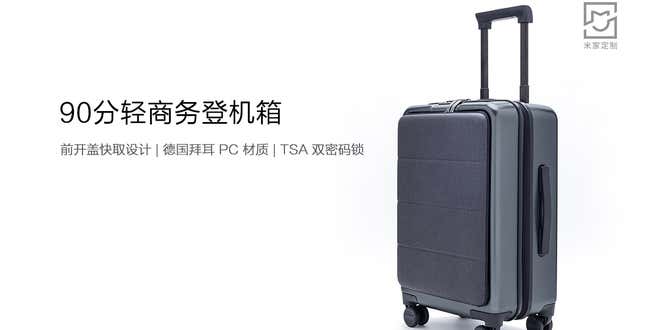
- An umbrella, for 99 yuan ($15).

- A pack of toothbrushes, for just under 40 yuan ($6). (Nope, not even electric.)
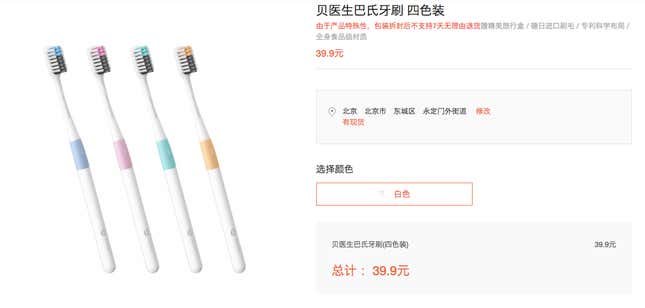
- Eight different types of pillows, priced between 49 yuan and 238 yuan (about $7.40 to $36).
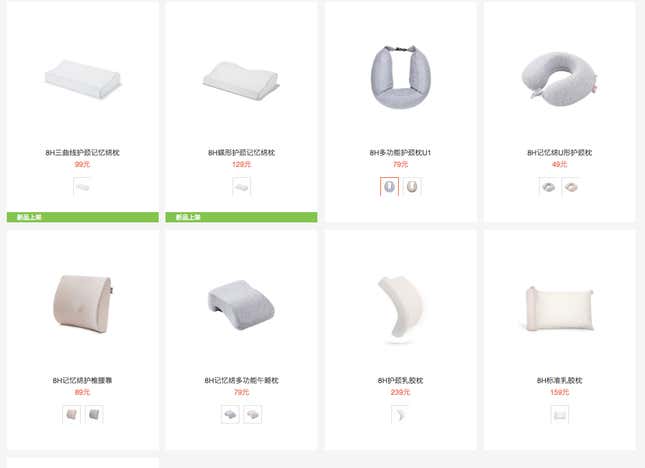
Xiaomi also has an e-commerce site that’s separate from its core tech brand called Youpin, where it sells hundreds of other everyday products—from towels, to hair dryers to wine glasses to slippers.
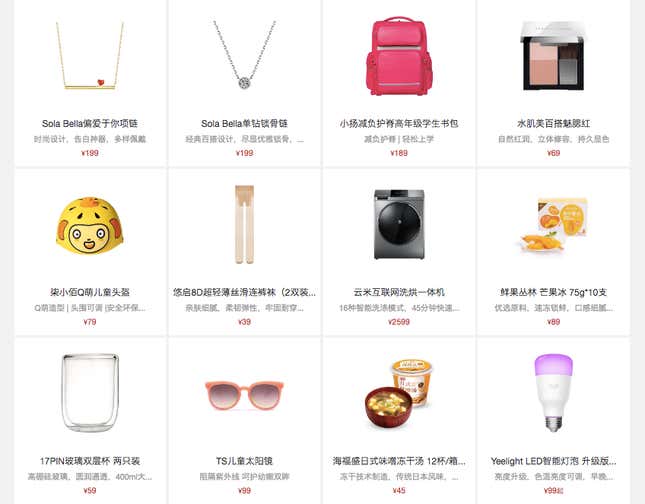
Like most of Xiaomi’s hardware products, Xiaomi’s non-tech products are not made by Xiaomi itself, but by third parties. Its bedding supplies, for example, are made by 8H (link in Chinese), a furniture company located in Chengdu. Its umbrella is made by Shenzhen-based Xiumei (link in Chinese), which also makes pens and blenders (link in Chinese). But the brand that matters most to consumers is Xiaomi, which likely accounts for the majority of these companies’ sales.
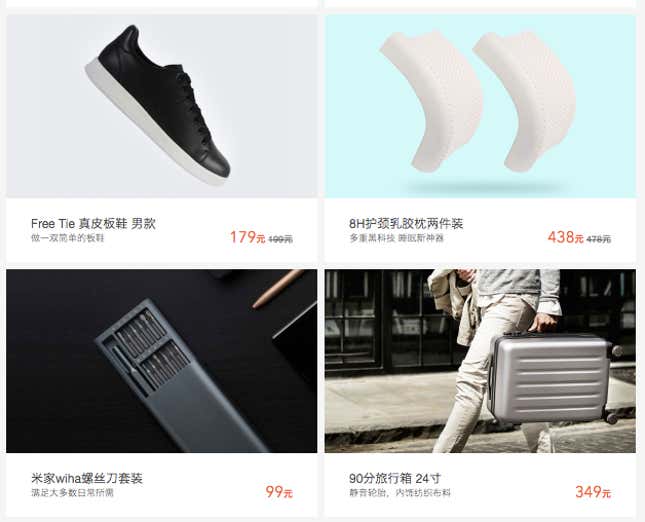
What explains Xiaomi’s move into bathroom items and furniture?
Lei Jun, speaking at an event in Shanghai last August, said that he wants Xiaomi to be “Muji in the science and technology sector, with high quality, high value, cost-effectiveness, and a variety of products.”
Yet by offering pillows and toothbrushes (both online and in its offline stores), Xiaomi is becoming more and more like the actual Muji, rather than the Muji of science and technology. While its product catalog isn’t as vast as the Japanese retailer’s, both companies offer their customers simple products, designed fashionably-but-unpretentiously, and priced affordably.
What will this mean for Xiaomi’s bottom line? It’s possible that Xiaomi is attempting to become a retailer that cultivates loyal fans—or Mi Fans, as it likes to call them, a play on the Chinese for “rice noodles”—who return to its stores regularly for more purchases, whether that be for a new phone, a new drone, or a new toothbrush. On the other hand, if Xiaomi intends to earn most of its profit from “internet services,” it’s hard to see how selling pillows will help them do that.
